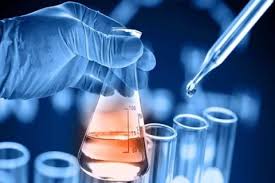CSS Image Gallery Support Product Page
buy methylone
Asked 03 Feb 2024 13:18:16
1
has this question
03 Feb 2024 13:18:16 Александр Мицкевич posted:
 Chemistry and Biochemistry:
Chemistry and Biochemistry:Chemical Synthesis: Refers to the execution of chemical reactions to form a more complex molecule from chemical precursors. It includes concepts such as organic synthesis, total synthesis, convergent synthesis, and dehydration synthesis.
Biosynthesis: Involves the creation of an organic compound in a living organism, usually aided by enzymes. This encompasses processes such as photosynthesis and chemosynthesis.
Inorganic Synthesis: Involves the preparation of compounds with significant non-organic content, such as the synthesis of the anti-cancer drug cisplatin from potassium tetrachloroplatinate.
Academic Writing and Research:
Synthesis in Research: Involves the integration of research on advanced topics in a field of study to add a new interpretation or analysis of sources. It emphasizes the organization of research and the use of synthesis matrices to visually represent connections between sources.
Other Fields:
Deductive Reasoning: Synthesis is associated with deductive reasoning https://2summitdentalcenter.com/methylone-the-molecular-maestro-of-psychoactive-chemistry and the combining of diverse conceptions into a coherent whole.
Biology and Biochemistry: In biochemistry, synthesis pertains to the production of an organic compound in a living thing, especially as aided by enzymes. This includes processes like photosynthesis and biosynthesis.
Chemical Synthesis: Involves the creation of complex chemical compounds from simpler ones. It is a fundamental process for obtaining substances important to daily life and is applied to all types of chemical compounds, with a focus on organic molecules. Chemists aim to create new substances with scientifically important or practical properties, and the synthesis of new chemical entities is crucial for various applications, including medicinal chemistry.
Organic and Inorganic Synthesis: Organic synthesis deals with the creation of organic compounds, often requiring multiple procedures in sequence to synthesize complex products. Inorganic synthesis involves the preparation of compounds with significant non-organic content and is essential for various industrial processes.
Total Synthesis: This refers to the complete chemical synthesis of a complex molecule, often a natural product, from simple, commercially-available precursors. It is particularly important for the discovery of new chemical reactions, establishing synthetic routes for medicinally important compounds, and creating new chemical entities.
Medicinal Chemistry: Chemical synthesis plays a crucial role in medicinal chemistry, where the creation of new chemical substances is aimed at developing compounds with scientifically important or useful properties for practical purposes. During World War II, chemical synthesis was instrumental in the rapid identification and preparation of the antimalarial drug chloroquine.
Research and Innovation: Chemical synthesis is at the heart of much chemistry research, serving as the basis for discovering compounds with new physical or biological properties. It involves the development of new reactions, catalysts, and techniques, and is crucial for the design and creation of new molecules for testing interesting properties or activities.